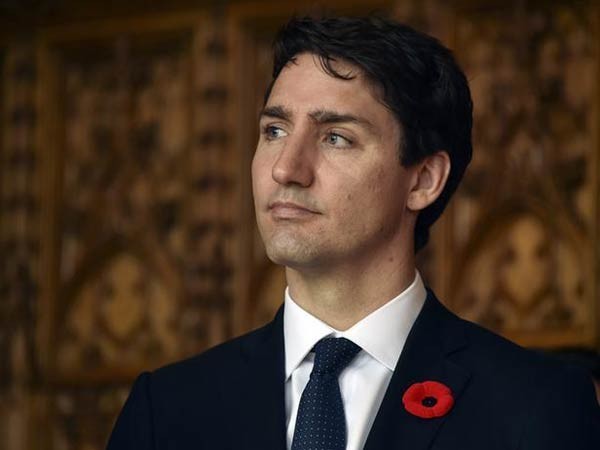UPDATE 4-Canada's Trudeau keeps the wheel but prepares for left turn

- Country:
- Canada
Canadian Prime Minister Justin Trudeau hung onto power on Tuesday, after a tight election reduced his Liberal government to a minority, a result that will likely push his agenda to the left while alienating energy producing provinces. Trudeau, one of the world's most prominent progressive politicians, struggled with domestic scandals that dented his popularity among Canadians and led to a drop in the Liberal vote across the country on Monday.
The Liberals won or were leading in 157 of the country's 338 electoral districts, a drop of 20 from where they stood going into the election, preliminary results showed. The party also trailed the main opposition Conservatives in the popular vote by just over a percentage point. The election was a disappointment for Conservative leader Andrew Scheer, who had promised to balance the federal budget and eliminate a "carbon tax" on fossil fuels.
Trudeau looks set to govern with support from the left-leaning New Democratic Party, which also lost seats but managed to do well enough to hold the balance of power. Together, the parties would control a comfortable majority of 181 seats. NDP leader Jagmeet Singh is positioned to press for action on priorities such as more social spending on housing and healthcare.
"Those are going to continue to be our priorities. Canadians elected us with that responsibility and I take it very seriously," Singh said in Burnaby, British Columbia. "I'm hoping that Mr. Trudeau respects the fact that there's a minority government now, which means we've got to work together." The NDP also could push Trudeau's government to do more to combat climate change. Additional pressure for such action will come from the Greens, who won three seats.
The danger for Trudeau is that a leftward turn could alienate the business community and further endanger his party's standing in the oil-rich provinces of Alberta and Saskatchewan, where the Liberals did not win any seats on Monday. The Canadian dollar weakened against the greenback on Tuesday and the heavily-weighted energy sector fell on the Toronto stock market, as investors worried it would now be more difficult to build new oil pipelines.
Minority governments in Canada rarely last more than 2-1/2 years. The New Democrats struck deals to help keep Liberal minority governments in power from 1972-1974 and in 2005. One senior Liberal noted that many legislators need to serve another two years to meet the six-year requirement for a Parliamentary pension.
"That gives us a pretty free hand for that period," said the Liberal, who requested anonymity given the sensitivity of the matter.
'CLEAR MANDATE'
With nearly all votes counted, the Conservatives were leading or elected in 121 seats, an improvement on their performance in 2015 but a far cry from the surge they had hoped for. The Conservatives won 34.4% of the popular vote, with the Liberals taking 33.1%, according to preliminary results.
Even before the election, some in the party were speculating about a leadership challenge if Scheer lost. Scheer said on Tuesday in Regina, Saskatchewan, that he would continue to lead the party.
The Conservative leader also said Canada was more divided than ever because of Trudeau's approach and that the responsibility rested with the Liberal leader to work with other parties and "to stop attacking the energy sector." Trudeau visited Montreal's subway, posing for selfies with commuters early on Tuesday, an echo of 2015 when he did the same thing after leading the Liberals out of the political wilderness and into a majority government.
This win was different. But Trudeau barely mentioned the loss of his majority when he told supporters he had "a clear mandate" for a progressive agenda and more action to combat global warming. Many in Alberta and Saskatchewan are angry about what the energy industry sees as overly stringent environmental rules, and those western provinces cast out every Liberal legislator.
Canada's oil sands, home to the world's third-largest crude reserves, lie entirely within Alberta. The energy sector accounts for 11% of Canadian GDP. "This truly is the worst possible outcome," said Tim Pickering, chief executive of Auspice Capital Advisers, which manages a Canadian crude oil exchange-traded fund. "We have got a Liberal minority and the balance of power shifts to the NDP and the Greens, who are completely opposed to any progressive energy policies."
Trudeau also must contend with a re-energized Bloc Quebecois, the separatist party that only contests elections in the mainly French-speaking province of Quebec. It won 32 seats, more than triple its total in the 2015 election. Trudeau's liberal image took a blow early in the campaign when photos emerged of him wearing blackface in the early 1990s and in 2001.
He had already been wrestling with fallout from accusations he pressured former Justice Minister Jody Wilson-Raybould to help shield engineering firm SNC-Lavalin Group Inc from corruption charges. In August, a top watchdog said he had breached ethics rules. Wilson-Raybould, now an independent member of parliament, retained her seat, a feat in a country where nearly all legislators are backed by major parties. Former minister Jane Philpott, who also quit the cabinet over the affair and ran as an independent, lost her Ontario riding.
Also Read: 'Justin Trudeau can closely study Scott Morrison's victory in Australia'
(This story has not been edited by Devdiscourse staff and is auto-generated from a syndicated feed.)
ALSO READ
Germany denies complicity in Gaza genocide at U.N. court
US investor Baker, Beetz-led group to buy Germany's Galeria, sources say
Germany fully backs submarine negotiations with India, wants to offer military cooperation alternatives to New Delhi: German envoy
Germany denies accusation of aiding a genocide in Gaza at World Court
Tragic shipwreck off Djibouti leaves at least 38 migrants dead, many more missing










